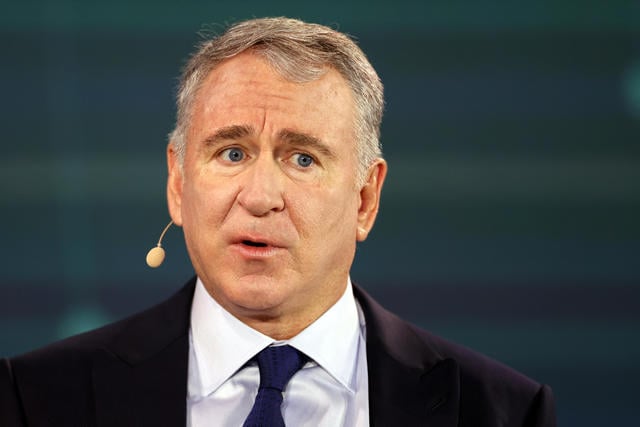Citadel Founder Griffin Does not Need Extra Florida Casinos

Ken Griffin, Citadel’s founder and co-chief funding officer, believes Florida is already heading in the right direction, and extra casinos might derail the state’s spectacular financial trajectory.
Citadel founder Ken Griffin. He opposes on line casino growth in Florida. (Picture: Getty Photos)
In a brand new op-ed for the Miami Herald, Griffin, whose hedge fund is without doubt one of the world’s largest, referred to as new on line casino gaming growth laws earlier than the Florida legislature a “menace to our shared prosperity.”
There are roughly 20 gaming venues within the state, with Laborious Rock-branded properties operated by the Seminole Tribe accounting for a plurality. Caesars Leisure runs Harrah’s Pompano, and different casinos are strewn throughout South Florida.
As Griffin famous, in 2018, Florida voters overwhelmingly authorised a poll initiative stating on line casino gaming growth within the state have to be confirmed by voters, not politicians. Senate Invoice 1054 and Home Invoice 1127 at present earlier than these chambers quantity to legislative gimmickry geared toward “sidestepping voters,” opined the billionaire.
Griffin’s Distinctive Perspective
Although not talked about in his piece for the Herald, Griffin has an attention-grabbing perspective on the difficulty of some jurisdictions turning to casinos to generate jobs and bolster authorities coffers.
For many years, Citadel was based mostly in Chicago. However in 2022, Griffin determined to maneuver the hedge fund to Miami after one in every of his workers was held up at gunpoint on their solution to get espresso within the Windy Metropolis. Illinois, together with Chicago, has more and more turned to casinos to shore up the state’s ailing funds and people of some cities. It’s a gambit Griffin doesn’t assist.
Too typically, native casinos earn a majority of their earnings from residents with playing issues. This results in damaged lives, shattered households and better crime charges locally,” he wrote within the Herald. “One can see the injury throughout quite a few metrics. For instance, close by dwelling values are decreased by the opening of casinos, in accordance with the Nationwide Affiliation of Realtors.”
Griffin is a longtime donor to Republican candidates, placing him at odds with policymakers in deep blue Illinois. Crime and high quality of life gave the impression to be the motivations for transferring Citadel to Florida. Within the course of, Illinois misplaced one in every of its greatest particular person payers of revenue tax, together with a slew of extremely compensated Citadel staffers who moved to Miami.
Florida Alluring for Casinos
Because the third-largest — and one of many fastest-growing states — Florida is undoubtedly compelling to on line casino operators. That’s notably in these areas through which the businesses might probably set up new gaming venues with out butting heads with the Seminoles.
Some gaming corporations could also be shrewd sufficient to contemplate different elements of Florida. However ongoing makes an attempt are to carry a on line casino resort to the Miami space. For instance, Fontainebleau Miami Seashore proprietor Jeffrey Soffer has donated closely to Florida Republicans, although it’s broadly identified the residents of Miami Seashore don’t need a on line casino.
That’s the place Griffin might flex his monetary muscle. He’s value an estimated $37.2 billion. It’s doable — although he didn’t point out something to this impact — that he might pledge to assist a 2028 White Home bid by Gov. Ron DeSantis (R-FL). That’s if the governor opposes on line casino growth within the state. These are to-be-determined components, nevertheless it’s clear Griffin doesn’t need new gaming venues in South Florida.
“Permitting casinos to hurt thriving communities and undermine Florida households is like willingly dumping poisonous waste into the Everglades,” he concluded within the Herald. “Casinos are a nasty wager for South Florida. We have to defeat this reckless laws, defend our private rights as voters, and defend Florida’s future.”





